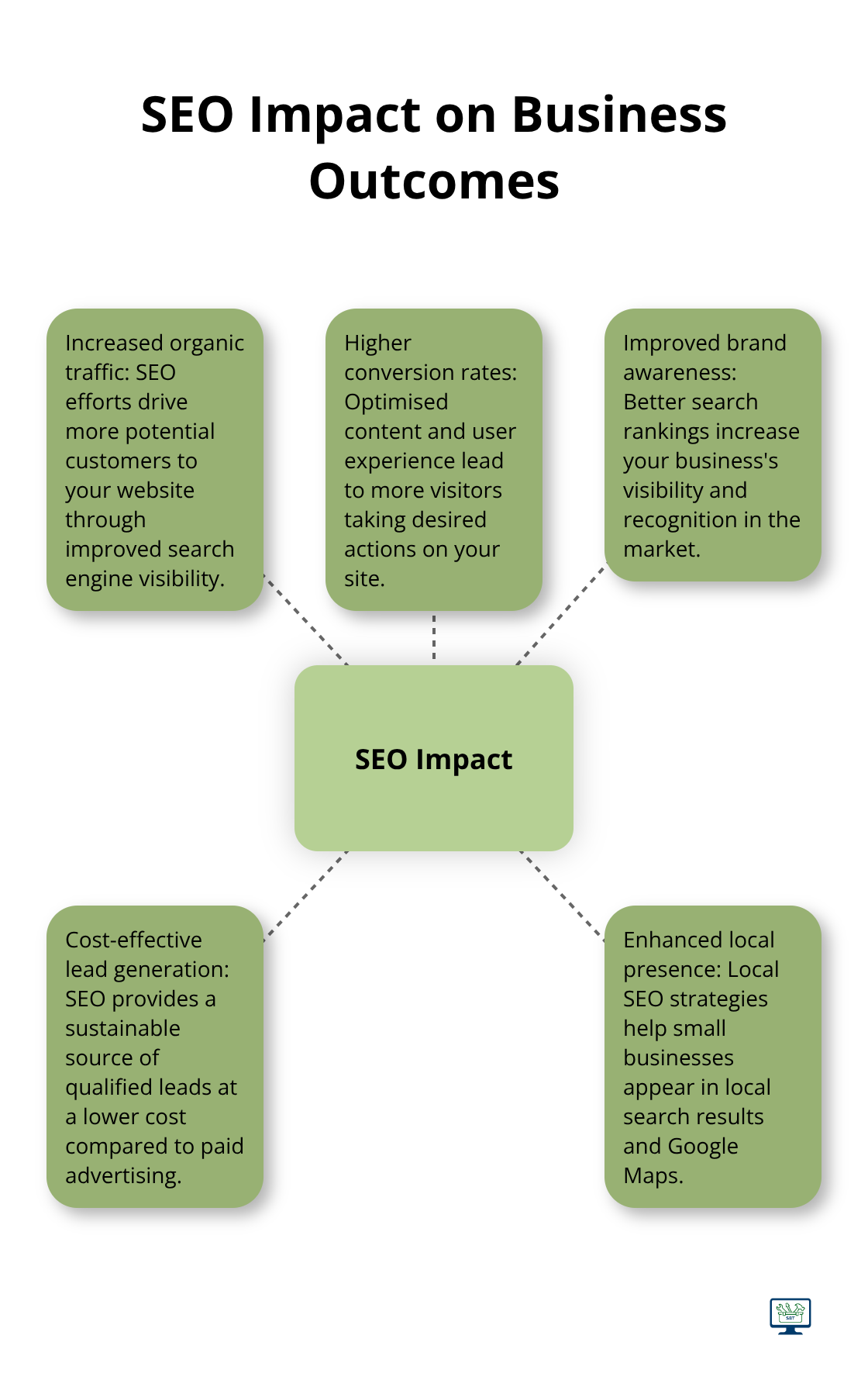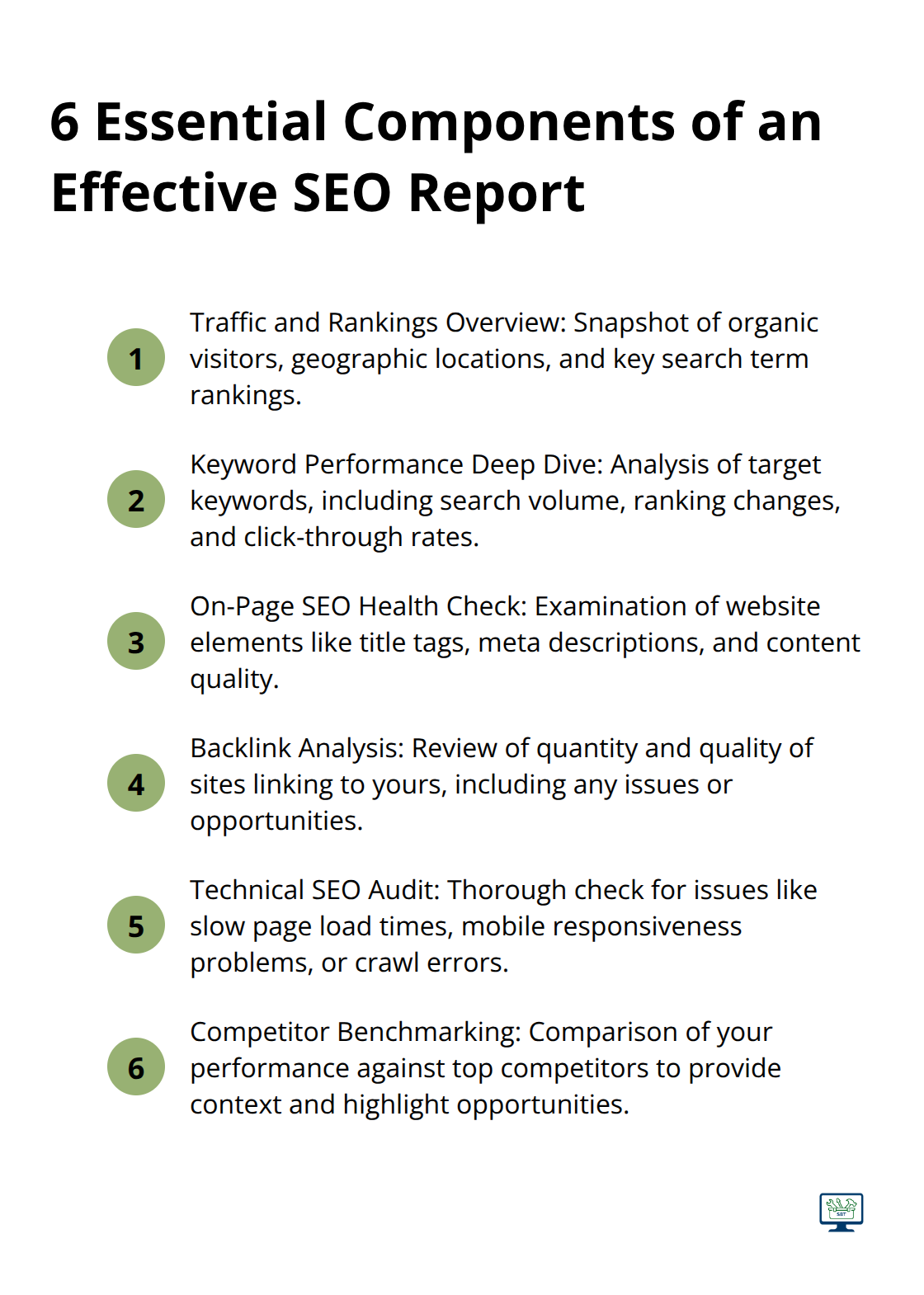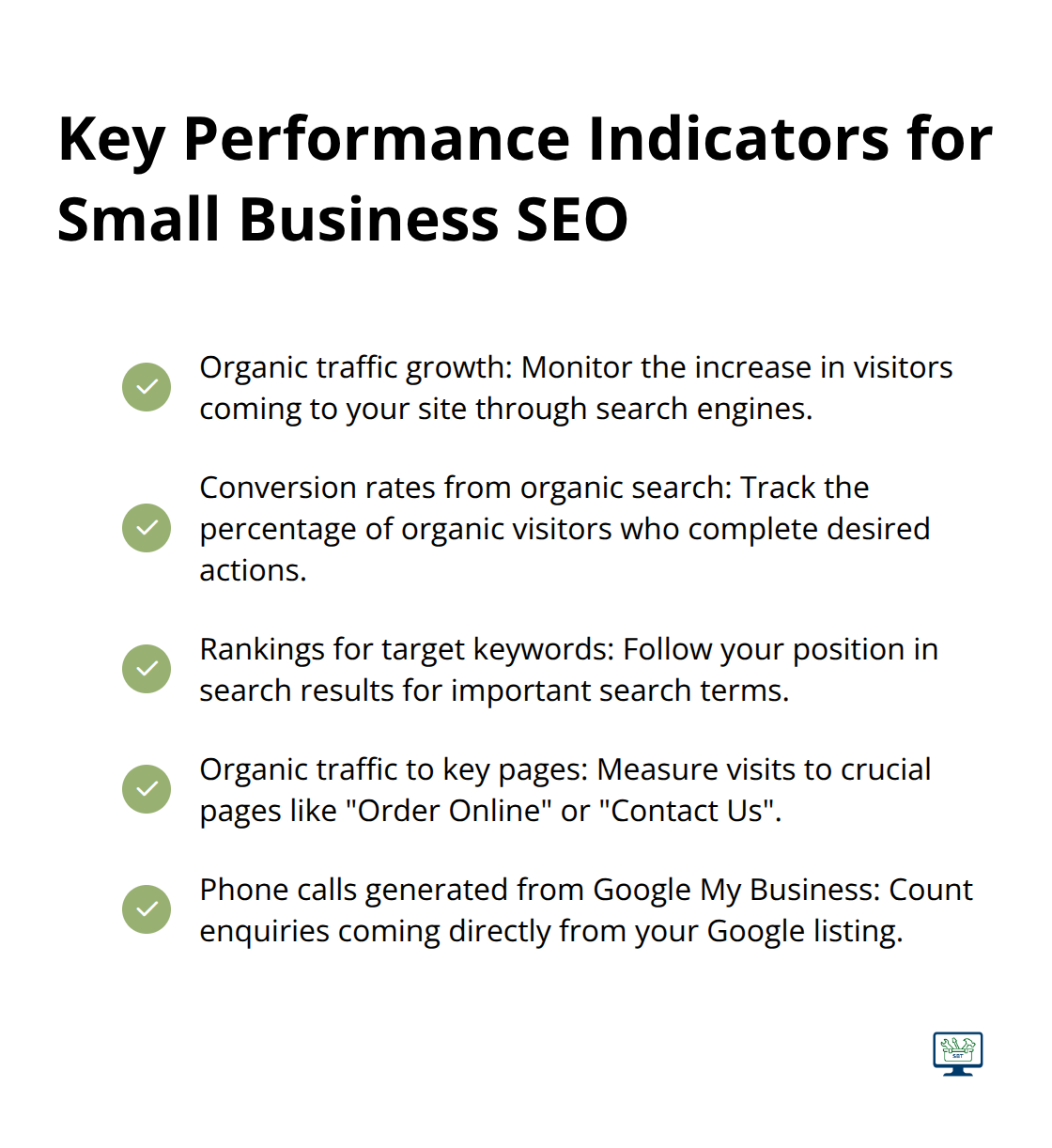How to Create an Effective SEO Report

Published On Sep 04,2025
At WebsiteStrategies, we know that creating an effective search engine optimisation report is crucial for small business owners in Australia.
A well-crafted SEO report helps you track progress, identify opportunities, and make data-driven decisions to improve your online visibility.
In this post, we’ll guide you through the essential components of a comprehensive SEO report and share tips on presenting data effectively to stakeholders.
Why You Need an SEO Report
Define Clear Goals for Your Report
SEO reports serve as essential tools for small business owners in Australia. They provide a clear picture of your website’s performance in search engines and help you make informed decisions about your online marketing strategy.
Before you create your SEO report, you must define what you want to achieve. Do you want to increase organic traffic? Improve rankings for specific keywords? Or do you aim to boost conversions from organic search? Clear goals ensure that the data you collect and present is relevant and actionable.
Understand Your Audience
Your SEO report should cater to the needs of its readers. For a small business owner, this might mean focussing on high-level metrics and bottom-line impact. For a marketing manager, more detailed data on keyword performance and technical SEO issues might be necessary. Identify who will read your report and tailor the content accordingly.
Link SEO to Business Outcomes
The most effective SEO reports don’t just present data – they show how SEO efforts contribute to business goals. This might include tracking the number of leads generated from organic search or the revenue attributed to SEO-driven traffic. Aligning your report with broader business objectives demonstrates the real value of your SEO efforts.
An SEO report is not just a collection of numbers and charts (although these are important components). It’s a strategic document that should guide decision-making and drive action. Focus on these key aspects to create reports that are both informative and instrumental in growing your online presence and your business.

Now that we’ve covered the importance of SEO reports and how to approach their creation, let’s move on to the essential components that make up an effective SEO report.
What Should Your SEO Report Include?
A comprehensive SEO report provides small business owners with a clear understanding of their online performance and guides informed decision-making. Here’s what an effective SEO report should include:
Traffic and Rankings Overview
Start with a snapshot of your website’s organic traffic. Include the number of visitors, their geographic locations, and average time on site. Highlight rankings for key search terms. For example, a local plumber in Brisbane should see how they rank for “emergency plumber Brisbane” and similar phrases. This guide will walk you through some of the most common and effective improvements you can do on your site.
Keyword Performance Deep Dive
Analyse the performance of your target keywords. Look at search volume, ranking changes, and click-through rates. If “24-hour plumbing services” gains traction, capitalise on this trend. Keyword research is the process of finding and analyzing what relevant audiences search for in search engines like Google.
On-Page SEO Health Check
Examine your website’s on-page elements, including title tags, meta descriptions, and content quality. If your “Services” page lacks optimisation for local searches, add your city name to the page title or include more location-specific content (this improves local SEO visibility).
Backlink Analaysis
Review the quantity and quality of sites linking to yours. Flag sudden drops in backlinks or increases in spammy links. Propose a plan to address these issues. Consider recommending outreach to local business directories or industry associations for high-quality link opportunities.
Technical SEO Audit
Conduct a thorough technical audit to uncover issues that could hold your site back. This might include slow page load times, mobile responsiveness problems, or crawl errors. Prioritise these issues and provide clear steps to fix them. For instance, if images slow down your site, suggest compression techniques or lazy loading implementation. This guide will walk you through some of the most common and effective improvements you can do on your site.
Competitor Benchmarking
Compare your performance against top competitors. This provides context for your SEO efforts and highlights areas where you can gain an edge. You might discover a competitor ranking well for an overlooked keyword, presenting a new opportunity for your business.
An effective SEO report doesn’t just present data; it translates complex information into actionable insights. In the next section, we’ll explore how to present this data effectively to ensure maximum impact and understanding.

How to Present SEO Data Effectively
At WebsiteStrategies, we understand that effective presentation of SEO data is as important as its collection. A well-crafted SEO report can transform complex information into actionable insights. Here’s how to create clear, compelling, and useful SEO reports for small business owners in Australia.
Select Key Performance Indicators
Identify the metrics that matter most to your business. Most small businesses should focus on 5-7 key performance indicators (KPIs) that directly relate to their business goals. These might include:
- Organic traffic growth
- Conversion rates from organic search
- Rankings for target keywords
For a local bakery in Sydney, relevant KPIs could be:
- Organic traffic to the “Order Online” page
- Rankings for “best cupcakes in Sydney”
- Phone calls generated from Google My Business listing
- Conversion rate for online orders from organic search
(Avoid overwhelming your report with every possible metric.)

Use Visual Elements
People process visual information faster than text. Incorporate charts and graphs to illustrate trends and comparisons. A line graph showing organic traffic growth over time or a pie chart displaying traffic sources can convey information at a glance.
Tools like Google Analytics help create professional-looking visualisations. Even simple Excel charts can be effective if they’re clear and well-labelled.
Add Context and Insights
Raw data without context lacks meaning. Explain what each metric means and why it matters. If organic traffic has increased by 20%, that’s positive – but what caused that increase? Was it a successful content marketing campaign? Improved rankings for key terms? New backlinks from authoritative sites?
Address negative trends as well. If rankings have dropped for certain keywords, explain potential reasons and outline steps to address the issue.
Provide Actionable Recommendations
An effective SEO report should offer a roadmap for improvement. For each key finding, include specific, actionable recommendations. These might include:
- Optimise specific pages for target keywords
- Create new content to address gaps in your current strategy
- Improve site speed by compressing images or upgrading hosting
- Build quality backlinks through outreach to industry publications
Prioritise these recommendations based on potential impact and ease of implementation. This helps business owners make informed decisions about resource allocation.
(The goal of your SEO report is to drive action that improves online visibility and grows your business.)
Wrapping Up
An effective search engine optimisation report transforms data into actionable insights for small business owners in Australia. It provides a clear picture of website performance, highlights improvement areas, and guides digital marketing strategy. Clear communication makes complex information accessible and meaningful, enabling informed decisions about SEO efforts and resource allocation.
SEO reports should evolve with business needs and the changing digital landscape. We recommend continuous refinement of reporting practices, stakeholder feedback, and staying updated on industry trends. This ensures SEO reports remain valuable tools for driving online visibility and business growth.
WebsiteStrategies helps Australian SMEs turn their websites into powerful lead-generating assets through tailored SEO strategies and comprehensive audits. Our approach translates complex technical findings into actionable steps (empowering you to implement effective changes and achieve sustainable online growth). We invite you to contact us for expert assistance with your SEO reporting and strategy.
